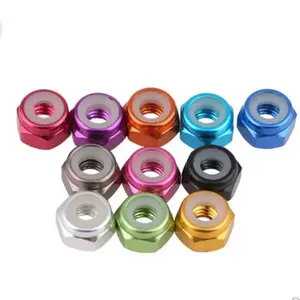Understanding Adjuster Nuts
Adjuster nuts are integral components in mechanical assemblies, offering precision and stability. These specialized nuts work in tandem with threaded bolts to form secure, anti-loosening joints crucial for a myriad of applications. The versatility of adjuster nuts lies in their various sizes and materials, catering to specific requirements of different structures.
Types and Materials
The adjuster nut family encompasses a range of types, each tailored for particular scenarios. Among the most prevalent is the hexagonal nut, known for its six-sided shape that facilitates ease of turning and installation. Materials vary, with stainless steel adjuster nuts being a popular choice for their rust-resistant properties, ideal for outdoor use where exposure to the elements is a concern.
Applications and Features
Adjuster nuts are not limited to a single industry; their use spans from securing household appliances to automotive applications. The design of these nuts ensures they provide a reliable fastening solution, capable of withstanding vibrational forces. For environments where vibration and torque are prevalent, locknuts with internal threading offer enhanced locking capabilities, ensuring the joint remains secure even under duress.
Advantages of Adjuster Nuts
The primary advantage of using adjuster nuts is their ability to maintain a tight joint without frequent retightening. This is particularly beneficial for structures subjected to constant movement or outdoor conditions. The durability of materials like stainless steel ensures longevity, reducing the need for replacement and maintenance.
Selecting the Right Adjuster Nut
When choosing an adjuster nut, it is essential to consider the specific needs of the application. Factors such as material compatibility, environmental conditions, and the type of load it will bear are critical. A diverse selection is available to meet these varying requirements, ensuring that the right adjuster nut is used for the right job.
Conclusion
In conclusion, adjuster nuts are a fundamental element in secure fastening applications. Their design and material composition allow for a wide range of uses, ensuring that structures remain intact and functional over time. Selecting the appropriate type and material is key to achieving the best performance in any given application.











































 浙公网安备 33010002000092号
浙公网安备 33010002000092号 浙B2-20120091-4
浙B2-20120091-4